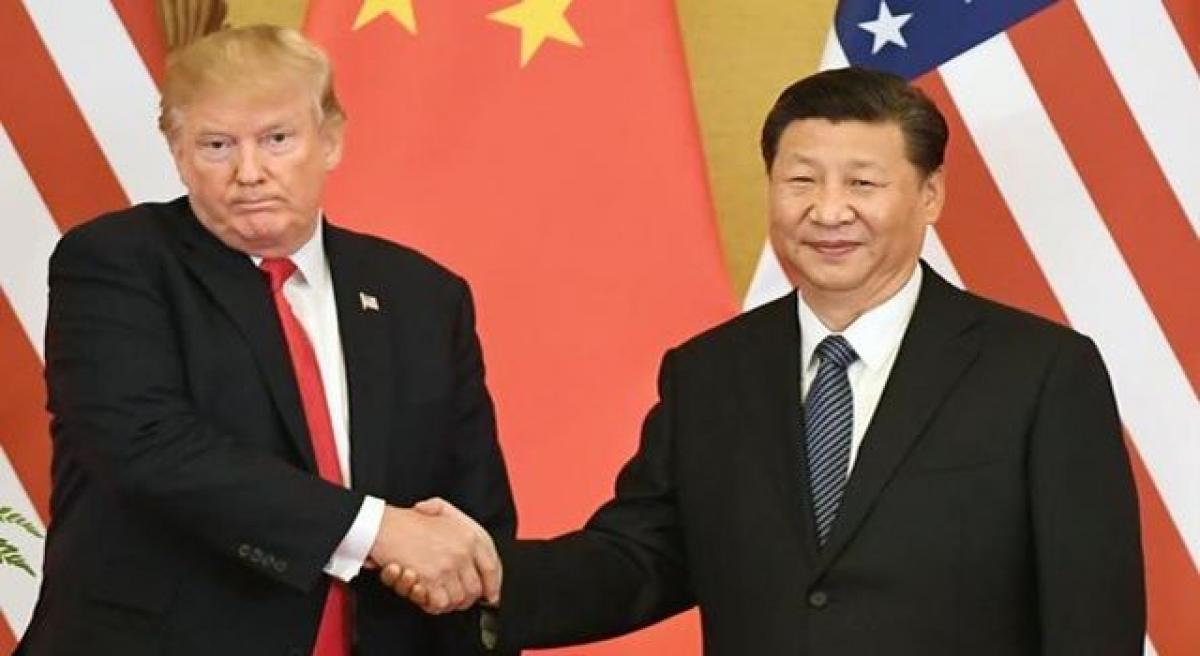Live
- Collaboration, innovation, PPP key to achieve 2047 goals: Jitendra Singh
- Portraits of National Leaders to be Unveiled in Karnataka Assembly Hall
- Kejriwal's claims on vision for development ridiculous: Delhi BJP
- One nation, one election need of the hour: Mukhtar Abbas Naqvi
- Educational Trips in South Kanara Put on Hold Following Murudeshwar Drowning Incident
- Karnataka Temple Embraces Mechanical Elephant for Cruelty-Free Ceremonies
- Temple modelled after Ram Mandir to be constructed in US
- Property dealer shot dead in broad daylight in Ranchi
- Maharashtra: CM Fadnavis expands Cabinet; inducts 39 ministers
- Winter Session of UP Assembly from Dec 16; CM seeks cooperation of all parties
Just In

“It sounds easy that we block imports and create jobs here but we forget about what other countries can do to us,\" says Doug Irwin, an economics professor at Dartmouth University and author of \"Peddling Protectionism: Smoot-Hawley and the Great Depression.\"
“It sounds easy that we block imports and create jobs here but we forget about what other countries can do to us," says Doug Irwin, an economics professor at Dartmouth University and author of "Peddling Protectionism: Smoot-Hawley and the Great Depression."
In a way, the US Administration seems to become oblivious of the adverse impact of the ‘Great Depression’ that lasted from 1929 to 1939 and the consequent suffering of the people. It is perhaps ditto with the ‘Great Recession’ from 2008 to 2009 after the financial crisis broke out in USA.
In 1930, the US Congress slapped tariffs on all countries that shipped goods to America in an effort to protect jobs of US workers affected by the Great Depression. It was called the Smoot-Hawley Act, named after two Republicans Congressman, Reed Smoot and Willis Hawley who introduced the bill.
In hindsight, contrary to perceptions, the then US import tariffs actually worsened the crisis because European nations like Spain, Italy and Switzerland and Uncle Sam’s neighbour Canada, called the bluff and retaliated by imposing their own import tariffs on US goods and a trade war began.
Not perhaps one who believes in ‘once bitten, twice shy’, President Donald Trump has triggered a trade war by imposing a tariff of 25% on steel imports and 10% on Aluminium imports to USA, by ‘invoking’ a National Security clause, beyond the tariff framework of World Trade Organisation (WTO).
His contention is ‘to protect the jobs of US Steel Industry workers’. He further aggravated the situation with his blabber, "Trade wars are good, and easy to win", blissfully ignorant of the history with regard to the cascading negative impact of a trade war on the world economy.
The US import tariffs on steel are mainly aimed at China (one of the largest exporters of steel to USA), as Washington had excluded many European and North American countries from the steel tariff.
China has now retaliated by imposing import tariffs on the US imports, including a 25 percent tariff on US pork imports & recycled aluminium, and a 15 percent tariff on American steel pipes, fruit and wine. China is also contemplating slapping several non-tariff barriers like possible cancellation of a $38 billion order to Boeing Company, restricting the number of Chinese students, disrupting operations of multinationals and imposing additional export duties on locally made Chinese products/ components exported to major players like Apple.
Not to be caught gaping, Trump has instructed his US Trade Representative (USTR) Robert Lighthizer to levy tariffs on at least $ 50 billion worth of Chinese imports. It is preposterous.
This ugly spat between Washington and Beijing is turning into a full-blown trade war. In the process, countries like India will face collateral damage and the world economy will suffer significantly.
A deliberate devaluation of Yuan to make its exports more competitive would be like a Chinese carpet-bombing, which is certain to send shock waves across the global markets.
Hopefully President Trump and President Xi Jinping learn a lesson or two from the trade wars of Great Depression and avoid a catastrophe to the world economy and the future of 7.6 billion people. (The writer is a finance professional)
By V Venkateswara Rao

© 2024 Hyderabad Media House Limited/The Hans India. All rights reserved. Powered by hocalwire.com







